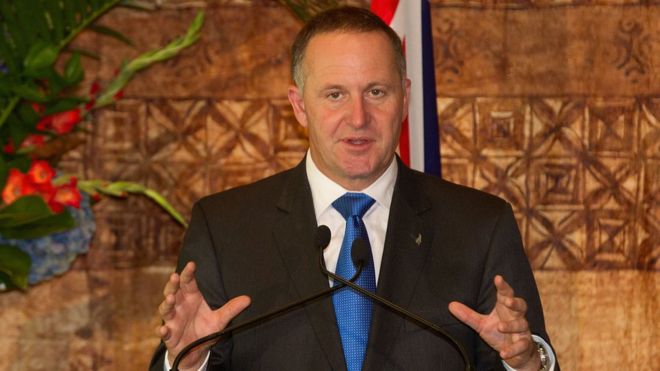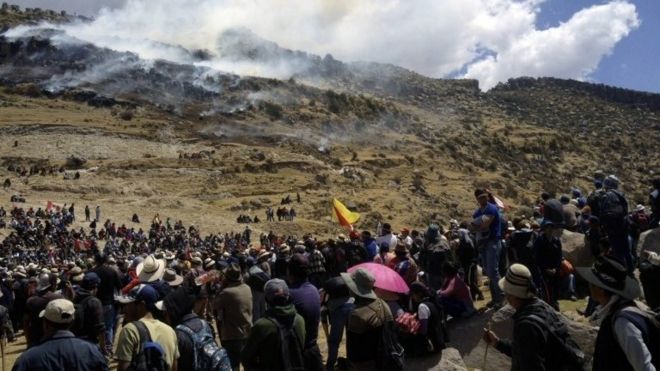|
New Zealand Criticizes Australian Deportation Laws; Hundreds Face Deportation
By Samuel Miller
Impunity Watch Reporter, North America and Oceania
SYDNEY, Australia — New Zealand has criticized Australia for detaining and deporting hundreds of New Zealanders under tough new immigration laws, saying the new laws were undermining the historically close ties between the two neighbors. The laws, introduced last year, mean any non-Australian criminal imprisoned for a year or more can have their permit to live in Australia revoked.

Since December, anyone who isn’t an Australian citizen and who has served a sentence of 12 months or more can be deported.
Following revelations that about 300 New Zealanders had been detained in Australia and faced deportation, John Key, the New Zealand Prime Minister, accused the Australian government of picking and choosing which citizens it kept.
“There’s people that have often spent their entire lives now in Australia, they went over there when they were very, very, young,” he told Radio New Zealand. “It’s a bit little bit like the Australians saying, ‘well, we’re going to pick and choose, we’re going to keep the ones we like but we’re going to send back the ones we don’t like’.”
About 200 New Zealanders are currently believed to be in detention, including some on a remote offshore center on Christmas Island, following Australia’s decision to allow deportations of all foreign citizens who have served a prison sentence of 12 months or more. About 100 New Zealanders have already been deported from Australia’s jurisdiction.
New Zealand officials can deport foreign citizens who commit crimes but the powers have been used sparingly. About 14 Australians have reportedly been deported in the past four years.
The region has recently come under scrutiny by the international community following multiple reports from distressed New Zealanders over their impending deportation.
Two weeks ago, Junior Togatuki, a 23-year-old New Zealander, took his own life after being detained in a high-security center while awaiting deportation. He had left New Zealand at age four and served a sentence for robbery and assault.
New Zealand last week deported a man from the tiny Pacific island nation of Kiribati who launched a failed bid to become the world’s first climate change refugee. Ioane Teitiota failed to persuade a court in New Zealand that he should be allowed to stay because rising seas around Kiribati threatened him and his family.
Another imminent deportee, Ricardo Young, 29, has lived in Australia since he was four and his partner and daughter live in Sydney. He is currently on Christmas Island awaiting deportation after serving a two-year prison sentence for aggravated robbery and assault.
Responding to New Zealand’s accusations, Australian Foreign Minister Julie Bishop said Malcolm Turnbull, Australia’s new prime minister, would meet with Mr. Key to try to resolve the dispute.
For more information, please see:
BBC News — Australia deportation laws criticised by NZ prime minister – 30 September 2015
The Telegraph — New Zealand condemns Australia for mass deportation of Kiwis – 30 September 2015
SKY News — Thousands of Kiwis could be deported – 29 September 2015
Peru Declares State of Emergency Following Protests
By Kaitlyn Degnan
Impunity Watch Reporter, South America
LIMA, Peru — Four people have died following clashes with police during protests in Apurímac, in the Cotabambas province in southern Peru. Another fifty protesters and police officers were injured, and about twenty-one protesters were arrested.

The demonstrations were against the Chinese-backed mining project at Las Bambas, owned by China’s MMG Ltd. The copper mine will be Peru’s largest, and is scheduled to begin production in May or June of 2016.
The communities in the area initially supported the Las Bambas project, but attitudes changed after an adjustment to the environmental impact assessment was made without consulting area residents. There are concerns that the mine could contaminate water sources and that the project isn’t creating enough jobs for residents.
The demonstrations, which began last Friday, escalated on Monday once protesters began gathering on mine owned land near Challhuahuacho. The official and alleged eyewitness accounts of what happened differ.
Peruvian authorities reported that police used non-lethal weapons until they were attacked by protesters breaking into Las Bambas property. Others have claimed that police began shooting live bullets as soon as the protesters tried to enter the property.
The state of emergency allows for a suspension of constitutional rights, including freedom of assembly and movement. Police will be allowed to search homes without a warrant.
Protesters have agreed to a 24 hour truce in the hopes of holding talks with the government.
Protests in Peru over mining projects have increased in recent years, with frequent escalation. Demonstrations against the Tia Maria copper mine back in May turned deadly and prompted a sixty day state of emergency.
The Observatory of Mining Conflicts in Peru reports more than 200 active social conflicts.
Peru is ranked third in the world for copper exports, representing about one tenth of the country’s economic output and 58% of its exports.
For more information, please see:
BBC – Peru declares state of emergency in mining region – 30 September 2015
Buenos Aires Herald – Four killed in anti-mining protests in Peru – 30 September 2015
LA Times – Peru protesters lift blockade at China-funded mine in hopes of talks – 30 September 2015